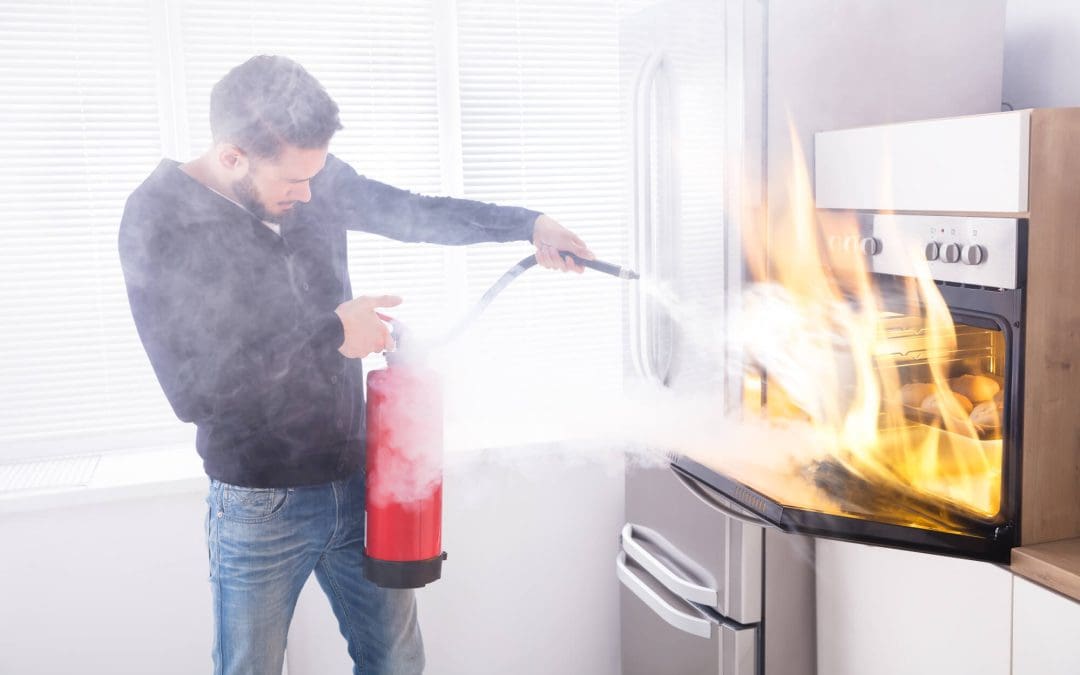The kitchen is the heart of the home, a place where families gather, meals are prepared, and memories are made. However, it’s also one of the most dangerous rooms in the house. With sharp knives, hot surfaces, electrical appliances, and slippery floors, kitchen safety should never be overlooked. Here are some key principles to keep your kitchen safe for you and your family.
Proper Knife Handling and Storage for Kitchen Safety
One of the most common kitchen hazards is improper knife use. To avoid accidents, always use a sharp knife, as dull blades can slip and cause injuries. When chopping or slicing, ensure your cutting board is secure and stable. Use a proper grip on the knife, and keep your fingers tucked in to avoid cuts.
Storing knives safely is just as important. A knife block or magnetic strip can keep your knives in a secure location. Never leave knives loose in a drawer where they can become hidden beneath other utensils. This can lead to accidents when reaching into the drawer without seeing what’s inside.
Preventing Burns and Scalds
Kitchens are full of hot surfaces and boiling liquids, making burns a common risk. Always use oven mitts or pot holders when handling hot pots and pans. Be cautious when removing items from the oven, as well as when transferring hot liquids from one container to another.
When cooking on the stovetop, turn pot handles inward to prevent them from being accidentally knocked over. If you have young children in the house, consider installing stove guards or using the back burners to keep hot surfaces out of reach. Be mindful when lifting lids off of boiling pots, as the steam can burn just as quickly as a flame.
Electrical Kitchen Safety
Many kitchens are equipped with multiple appliances, from toasters to blenders, making electrical safety crucial. To reduce the risk of electrical fires, make sure your appliances are in good condition and regularly checked for wear and tear. Avoid overloading outlets or using damaged extension cords, as this can lead to overheating.
Keep appliances away from water sources, such as sinks, to reduce the risk of electrocution. Always unplug appliances when they’re not in use, especially when cleaning. Be mindful of using wet hands when operating electrical devices, as this increases the likelihood of electrical shock.
Fire Prevention and Response
Kitchen fires are one of the leading causes of house fires. To prevent them, always keep flammable items such as dish towels, paper towels, and plastic utensils away from the stove. Avoid leaving food unattended while cooking, especially when frying or grilling, as grease fires can ignite quickly. Test your smoke detectors monthly to ensure they’re working properly.
In case of a grease fire, never use water to extinguish it. Water can cause the grease to splatter, spreading the fire. Instead, cover the pan with a lid to smother the flames or use a fire extinguisher rated for kitchen fires. Make sure you have a fire extinguisher easily accessible in your kitchen and know how to use it.
Avoiding Slips and Falls
Spills are a common occurrence in the kitchen, but they can also be a major hazard. Water, grease, and oil spills can make floors slippery and increase the risk of falls. Clean up spills immediately and use floor mats near sinks and cooking areas to provide extra traction.
When working in the kitchen, wear shoes with non-slip soles, especially when using sharp tools or handling hot food. Be mindful of any obstacles in the kitchen, such as open cabinet doors or drawers, which can create trip hazards.
Safe Food Handling Practices
While physical safety is a priority, food safety is equally important in preventing illnesses. Always wash your hands thoroughly before and after handling raw meat, poultry, or seafood. Use separate cutting boards for raw and cooked foods to avoid cross-contamination.
Ensure food is cooked to the proper internal temperature to kill any harmful bacteria. Leftovers should be refrigerated promptly and stored in airtight containers. Regularly clean your kitchen countertops, sinks, and appliances to prevent the buildup of bacteria that can cause foodborne illnesses.
Childproofing for Kitchen Safety
If you have young children, childproofing your kitchen is essential. Install safety latches on drawers and cabinets that contain knives, cleaning supplies, or small appliances. Keep sharp or heavy objects out of reach, and never leave hot items unattended on countertops.
Educate your children about the dangers of the kitchen and supervise them closely when they’re in the space. Teaching them kitchen safety from a young age can help prevent accidents as they grow older.
A safe kitchen requires constant awareness and vigilance. From using sharp knives correctly to preventing electrical and fire hazards, each step you take can help protect you and your family. Regularly assess your kitchen’s safety and make adjustments as needed to ensure that cooking and meal preparation remain an enjoyable and accident-free experience.
Kitchen Safety FAQs
How can I keep my kitchen sink area safe from mold and mildew?
To prevent mold and mildew around your kitchen sink, regularly wipe down the area after washing dishes and avoid leaving damp sponges or cloths near the sink. Keep the space well-ventilated and consider using a dehumidifier if your kitchen tends to be humid. You can also clean sink drains with a mixture of vinegar and baking soda to help prevent mold growth.
Is there a proper way to thaw frozen food safely in the kitchen?
The safest ways to thaw frozen food are in the refrigerator, in cold water (changed every 30 minutes), or in the microwave. Never thaw food on the countertop, as this allows bacteria to multiply rapidly at room temperature. Plan ahead by transferring frozen items to the refrigerator 24 hours before cooking, especially when dealing with large cuts of meat or poultry.
What is the safest way to dispose of hot oil or grease?
Never pour hot oil or grease directly down the drain, as it can solidify and clog your pipes. Instead, let the grease cool in the pan, then transfer it to a disposable container, like an empty can or jar. Once the container is full, throw it in the trash. If you frequently cook with oil, consider using a grease disposal bag designed to absorb fats and oils safely.
AAA Professional Home Inspectors offers inspection services to homebuyers and sellers in Kentucky and Southern Indiana. Contact us to request an appointment.

